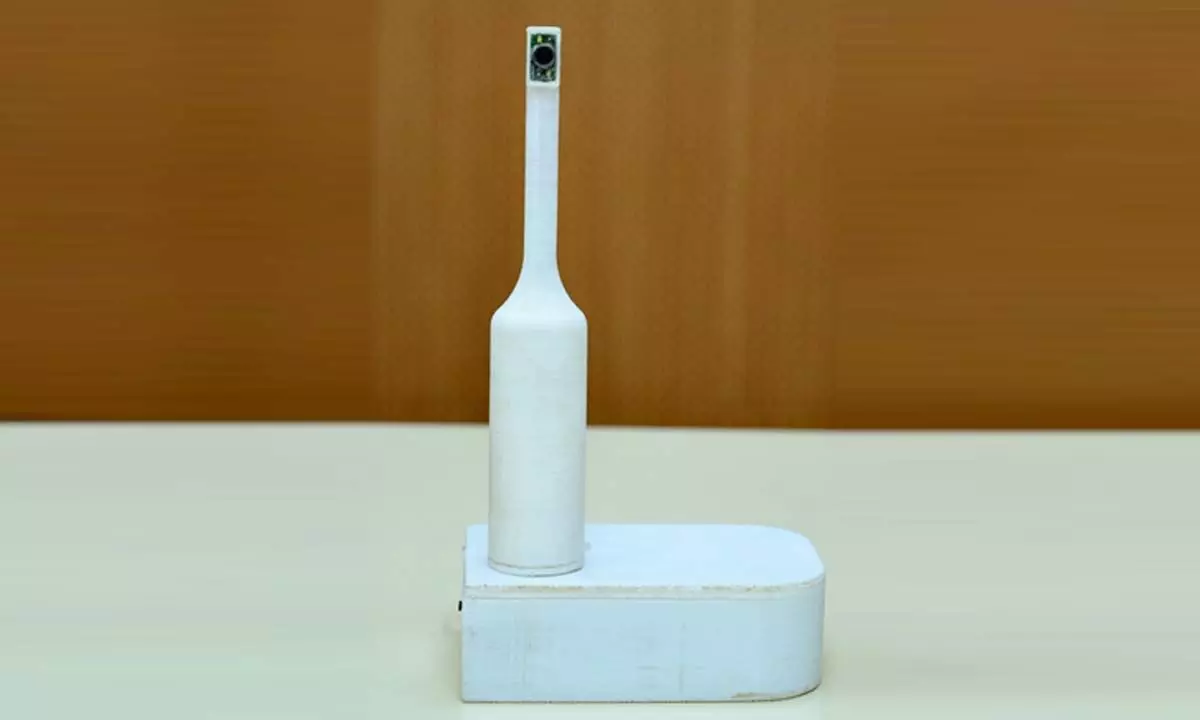IIT-Kanpur transfers non-invasive oral cancer detection device to industry
Share :

Indian Institute of Technology (IIT) Kanpur on Tuesday announced that it has transferred its portable and non-invasive oral cancer detection device to the industry to facilitate widespread adoption and commercial success.
New Delhi: Indian Institute of Technology (IIT) Kanpur on Tuesday announced that it has transferred its portable and non-invasive oral cancer detection device to the industry to facilitate widespread adoption and commercial success.
The unique technology named 'Munh Parikshak' is a portable device invented by Prof. Jayant Kumar Singh and his team from the Department of Chemical Engineering to detect oral cancer. The institute transferred the device to Scangenie Scientific, after signing a Memorandum of Understanding (MoU) with the company.
"Munh-Parikshak is a user-friendly device having a white and fluorescent light source that connects wirelessly to smartphones, tablets, iPads, etc," IIT-Kanpur said.
The device also comes with a built-in power backup, and it stores health history for tracking and provides instant oral health reports.
Using special lights and a camera, the device examines the mouth. It then analyses mouth images and categorises them as normal, pre-cancerous, or cancerous. The results are instantly displayed on a smartphone app and stored on cloud servers for continuous updates, making it ideal for self-testing.
The device offers quick and painless screening with 90 per cent accuracy in clinical settings. It is safe, radiation-free, and does not require any additional chemicals or processes, the institute said.
"The signing of the MoU with Scangenie Scientific marks a significant milestone in our mission to transition research and development into commercially viable products," said Prof Tarun Gupta, Dean of Research and Development at IIT Kanpur.
"This MoU aims to effectively market our invention within the healthcare sector, ultimately affordable and beneficial to everyone," he added.
Oral cancer is among the top global cancers, posing economic and clinical burdens on healthcare systems worldwide, particularly impacting India, where it constitutes up to 40 per cent of cases.
Early detection is vital to reduce morbidity and mortality, driving the need for affordable, non-invasive, user-friendly diagnostic tools for widespread screening.















